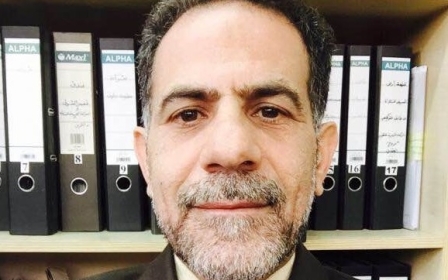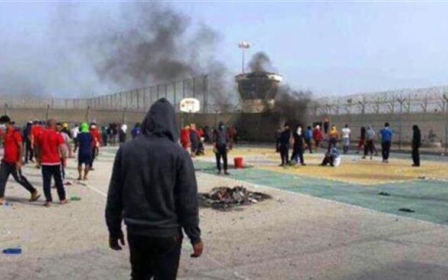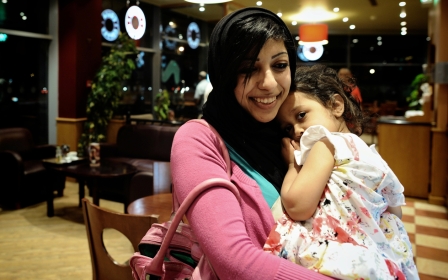Bahrain opposition slams 'provocative' doubling of leader's jail term

A Bahraini appeals court on Monday more than doubled a jail sentence against opposition leader Sheikh Ali Salman, in a move his party warned would stoke unrest among opposition activists.
The court increased the sentence imposed for charges of inciting violence to nine years from the original four, a judicial source said.
Salman's al-Wefaq party condemned the verdict as "unacceptable and provocative," warning it entrenches the escalating political crisis in Bahrain.
The 50-year-old was originally convicted in July 2015, drawing condemnation from human rights groups as well as both the United States and Iran. Demonstrators have taken to the streets on multiple occasions to demand his release.
Arrested in December 2014, he was also convicted last year of inciting hatred in the kingdom, but was acquitted of seeking to overthrow the monarchy and change the political system.
Al-Wefaq was Bahrain’s largest parliamentary bloc until its 18 MPs walked out in February 2011 to protest violence used against demonstrators.
Speaking after the verdict on Monday Jalila Alsayed, who has acted as Sheikh Salman's lawyer throughout his detention, claimed the trial had been unfair and that the rights of her client had not been respected.
She also claimed that video evidence presented by the prosecution had been "manipulated" and that attorney-client privilege had not been respected.
Maryam al-Khawaja, from the Gulf Centre for Human Rights told Middle East Eye: "The increasing of Al-Wefaq's secretary general's sentence is just another example of how the Bahraini judicial system works - as the main tool for silencing and targeting anyone who criticises the regime."
Al-Khawaja, whose sister is Zainab al-Khawaja currently in detention in Bahrain and faces three years in prison on charges including tearing up pictures of King Hamad bin Isa Al Khalifa, called on the UK government to distance itself from Bahrain.
Britain's close relationship with the ruling family in Manama was put in sharp focus earlier this month when the king was given pride of place next to the British monarch at her 90th birthday celebrations at Windsor Castle.
She said: "The UK government should distance themselves from this government body instead of funding training, otherwise they risk being seen as enabling the crackdown in Bahrain. Training will only be relevant if there is political will for accountability and reform by the Bahraini regime, which is not currently the case."
On Monday the British foreign minister Philip Hammond said he had raised the case with officials in Bahrain. Hammond is currently on a Gulf tour and said he was following the case "closely".
The tiny but strategic Gulf state has been shaken by unrest since it crushed a month-long, Shia-led uprising demanding democratic reforms in 2011. The Shia-majority kingdom, connected to Saudi Arabia by a causeway, lies across the Gulf from Shia Iran and is home to the US Fifth Fleet.
Despite the crackdown on the 2011 uprising, protesters still frequently clash with police in villages outside the capital Manama, with local human rights organisations reporting frequent injuries from tear gas and birdshot fired by security forces.
Brian Dooley, director of Human Rights First, told MEE: "Today's shocking verdict says the ruling family has no interest in dialogue, sharing power or recognising any views other than its own.
"Keeping the leader of the main opposition group in jail does nothing to end Bahrain’s political crisis and everything to stoke further instability in the kingdom. It’s a dangerous move by the regime, one it can’t really afford. Its allies in Washington and London should be alarmed at today’s decision, and at the direction the ruling family is taking the country.
Despite the crackdown on the 2011 uprising, protesters still frequently clash with police in villages outside the capital Manama, with local human rights organisations reporting frequent injuries from tear gas and birdshot fired by security forces.
Sayed Ahmed Alwadaei, director of advocacy at the Bahrain Institute for Rights and Democracy, said: "This is a black mark on Bahrain's justice system. Despite UN calls for Shiekh Ali Salman release, in the past the UK failed to call for Shiekh Ali Salman's release. This prison sentence confirms Bahrain's authoritarian policy in breaking and silencing any dissent in the country. Failure to condemn today's ruling is a green light for Bahrain."
New MEE newsletter: Jerusalem Dispatch
Sign up to get the latest insights and analysis on Israel-Palestine, alongside Turkey Unpacked and other MEE newsletters
Middle East Eye delivers independent and unrivalled coverage and analysis of the Middle East, North Africa and beyond. To learn more about republishing this content and the associated fees, please fill out this form. More about MEE can be found here.




